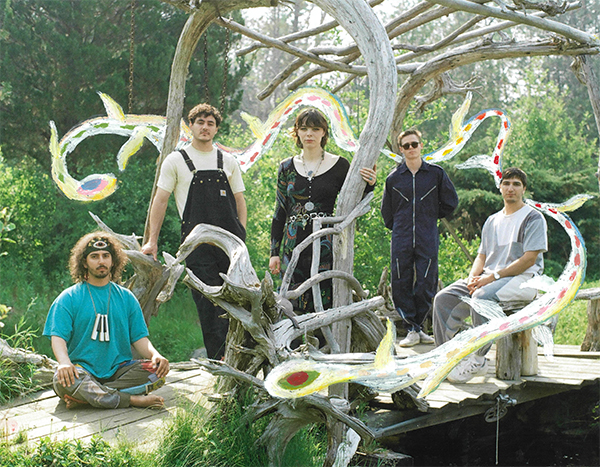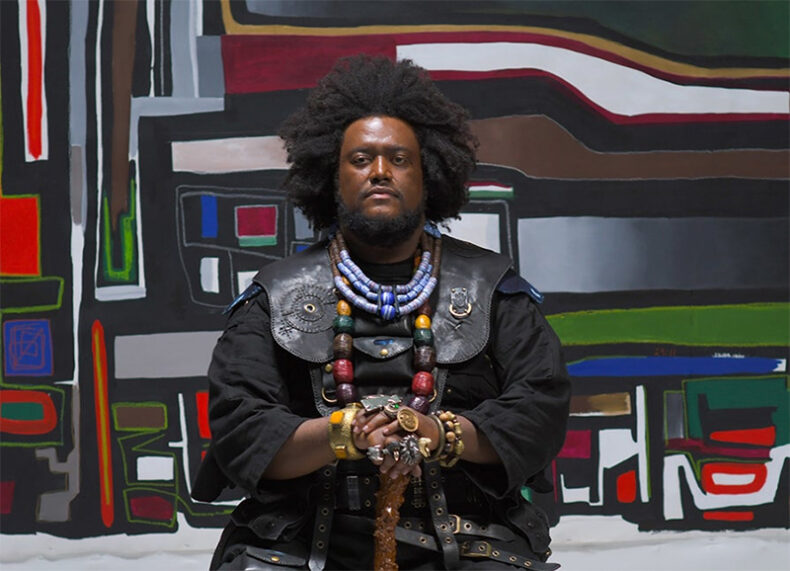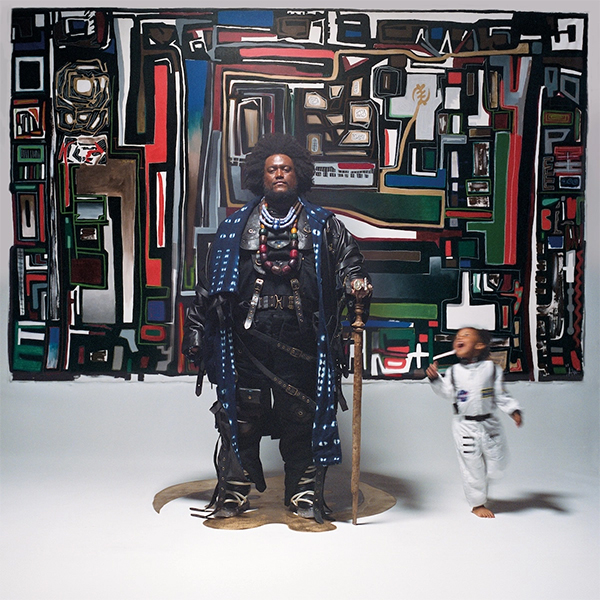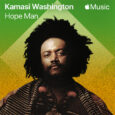KAMASI WASHINGTON w/ SHEBAD
@ HISTORY, TORONTO
MAY 7, 2024
Last week, Kamasi Washington released Fearless Movement, a monumental collection of music that has proven to be absolutely vital for the progression of jazz for the modern jazz age. The accompanying tour kicked off the following night, making Washington’s Toronto performance at History the third stop on the tour. The resulting show was an exceptional display of fluid musicianship as Washington and his all-star band delivered a post-genre approach to jazz that made for a truly thrilling experience.
Hailing from Guelph, ON, Shebad took the stage for an opening set. The five-piece band, comprising of a vocalist, bassist, drummer, and a violinist and synth player – both of whom would, on occasion pick up a trumpet and alto sax, respectively – displayed a strong level of musicianship to such a degree that, were they not opening for Washington, would have made any other headliner nervous. Their opening song alone consisted of not one, not two, but five separate feel changes, as the band seamlessly transitioned between a pop-infused blend of jazz, to a J Dilla drunken shuffle, into a free swing section, followed by a bossa, and lastly concluding in a hard funk groove. The composition was nothing short of bold and the band delivered on their ambitions. The rest of their set would largely comprise of songs that would reconcile jazz school noodling with pop sensibilities in expert fashion. Their set was a series of brilliantly-written songs led by incredibly smooth vocals played overtop a dynamic rhythm section, psychedelic tones, and elevating harmonies between horns, strings, and synths. Shebad will release its debut, full-length album this October.

SHEBAD
Taking the stage to a packed house was the seven-piece band, including their leader. Washington took centre stage with a pedal board for his sax on his right, and a keyboard on his left – something which he would use to excellent degree whenever someone else was soloing. His band comprised of trombonist Ryan Porter, DJ Battlecat, drummer Tony Austin, bassist Miles Mosley, pianist Brandon Coleman, vocalist Patrice Quinn, and Washington’s father, Rickey Washington, on flute. Digital elements and live instrumentation bled together to form a massively dense sound, one that could be equally lush as it was abrasive. Their set opened with a prayer, led by Quinn, as she expressed gratitude over an atmospheric swell from the instrumentalists as they went into “Lesanu”. Immediately, the sound of Washington’s sax and the balance of the band had a transcending effect on the audience that felt incredibly spiritual, leaving the room reeling with every note, every displaced rhythm, every colour of the complex harmonic progressions.
Washington and his band would perform for over two hours, only playing songs from Fearless Movement, totaling nine of the album’s twelve tracks. Among these, “Asha The First”, a near 20-minute rendition of “Computer Love”, the cinematically reflective “Interstellar Peace (The Last Stance)”, and the show closer “Prologue”, which, at times, felt like a duel between Washington and Austin who delivered some of the greatest drumming I’ve seen. This stood as highlights among a spectacular set. What shined brightest, however, was not the compositions as these were merely contexts for a near continuous flow of impressive improvisation among the band. On numerous occasions, Washington could be seen, carefully watching another musician, his face displaying equal levels of wonder and surprise as to the direction they would take, in which he and the rest of the band would respond almost effortlessly. This, of course, was used most underneath the virtuosic solos from the band, demonstrating a level of nuance on all fronts. The solos were nothing short of impeccable. Among these, Austin demonstrated a masterful control of rhythm while Mosley explored a range of textures through his array of effects and contrast of plucking and bowing on the upright bass. With each solo, Washington paints himself as a protégé of John Coltrane with a tone that can flip from moving melodies to explosively aggressive bursts of rhythmic notes set over modal passages that was always able to deliver a sense of climax to the song.
Never before have I seen an artist exclusively perform their new material, which should speak to the strength of Fearless Movement and the confidence Washington has in his artistry. In the middle of his performance, he would take pause and express “a moment of gratitude for music and the opportunity to make it.” Like watching Stevie Wonder, there is an unparalleled amount of joy on stage; Washington and his band perform for the love and service to music and a greater sense of creative expression, something which only enriches their performances. There is a sense of artistic purity among a staggering degree of greatness to their performance style, one which would prove to be as contemporary as Fearless Movement, due in part to the band’s modern fusion style, but also to the hip-hop connection that would be made largely through Battlecat and Coleman, both of whom would, on occasion, reference famous melodies from the genre among the array of improvised jazz. Between this, the natural chemistry among the band, and the power of Washington, I can confidently say that this was among the greatest musical experiences I have ever seen.








